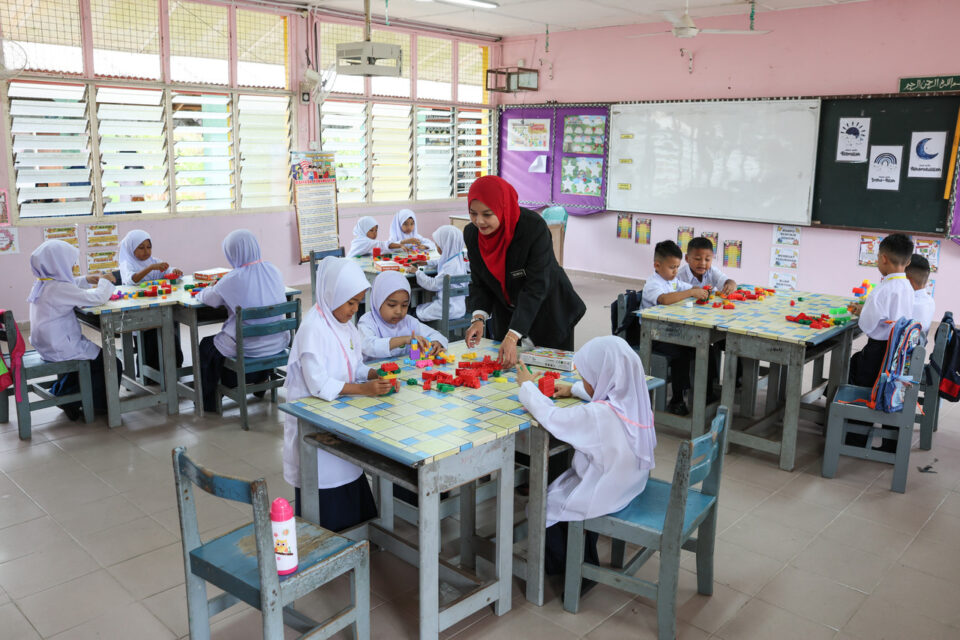KUALA LUMPUR, Oct 3 — The government needs to focus specifically on improving teaching and learning facilities and infrastructure in schools to ensure the education digitalisation agenda in the national education system can be fully achieved next year.
Secretary of the Education and Human Capital Development Cluster of the National Council of Professors Anuar Ahmad said for that purpose, the government needs to provide special allocations in Budget 2024, presented in October, to drive the digitalisation of education.
“To drive the education digitalisation agenda, every school needs to have good internet access in urban areas and rural areas to ensure that the teaching and learning process can be carried out more effectively.
“In addition, to launch teaching and learning sessions, the provision of suitable devices should also be given priority, in addition to the expansion of the device assistance scheme to ensure that more students from poor families benefit from this,” he told Bernama recently.
Anuar, a senior lecturer in the Centre for the Study of Diversity in Education, Faculty of Education at Universiti Kebangsaan Malaysia (UKM), said teachers must also be equipped with pedagogical skills based on information technology.
For that purpose, the government also needs to provide special allocations for training programmes to improve teachers’ pedagogical skills. In addition, provision for providing more digital content also needs to be allocated.
Apart from that, Technical and Vocational Education and Training (TVET) should be elevated as a mainstream in the national education system and no longer as a second choice considering that today’s field involves high technology aspects such as Artificial Intelligence technology, including robotics.
“The TVET programme also needs to be diversified as to the forms of courses offered following current needs, like introducing technical technology skills in the field of TVET studies for agriculture and animal husbandry.
“The government needs to provide more TVET and technical study opportunities for Sijil Pelajaran Malaysia graduates while building more new TVET and technical institutions. Not only that, the government must provide incentives to attract and involve more private parties in providing career opportunities in the TVET and technical fields,” he said.
Similarly, UKM’s Faculty of Education’ Counselling and Psychology lecturer Prof Salleh Amat hopes the infrastructure towards education digitisation, notably in rural areas, will be given prime attention to prevent students from dropping out due to current technological developments.
“Infrastructure needs to be improved, updated as it should be, that’s most important especially in rural areas because when you talk about technology-related digitalisation, it often moves fast.
“If the government truly wants to implement digitalisation in the country’s education system, it is a noble effort, but rural areas should not be marginalised,” he said.
Prof Salleh, who is also UKM’s Career Development Centre director, said allocations must not only provide technological facilities but basic facilities like electricity supply also need to be improved.
“The issue of electricity supply being cut off in schools is still being reported and can disrupt the students’ smooth learning process. Sometimes, there are teachers, like in Sabah and Sarawak, informing that although it is only in the evening, the electricity supply is cut off, and this causes the children to study in an uncomfortable and hot atmosphere,” he said.
He added that some schools are not equipped with learning tools such as projectors, whereas basic teaching equipment should be available in every school, not only in urban schools but also in rural areas.
Meanwhile, the Malaysian Academic Association Congress (MAAC) president Prof Ahmad Ismail said the higher education sector can play its role in achieving the Sustainable Development Goals (SDG) agenda by 2030.
In that matter, the government needs to make special provisions to enable lecturers to carry out related studies and then refer the results to the government for reference or as guidelines to formulate related policies.
“In addition, allocations are also needed to support assistant facilities such as post-doctoral and research assistants. More emeritus professors among retired professors who are still active also need to be appointed with financial allocations provided for them to continue high-impact research.
“To popularise ivory tower knowledge, funding for organising seminars at least once a year accordingly to whatever field is also necessary to collect current information from researchers, especially related to current issues,” he said.
— Bernama





